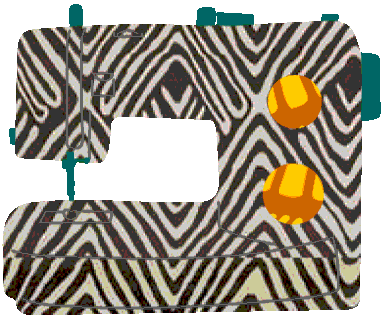Sustainable Fashion is The Way Forward
The sustainable living trend has taken off in South Africa, with most of the focus being on plastic. Plastic is a massive pollutant on the Earth. However, there are other areas in our daily lives where we can improve. It seems attention has not been drawn to these aspects, fashion being one of them.
Beautiful clothing items draw our eyes but do we really know what’s going on beyond the clothing rack? While some people know that factories in China and India do not have good facilities for the labourers, others are completely unaware. The carbon emissions from airplanes are also a large contributor to climate change. It seems South African are willing to make changes for the betterment of the environment, but what are fashion industries doing locally to implement these changes?
Some of the most exceptional clothes can be found in the most unexpected places such as Gumtree, where fashion is just a click away. Today we discuss how Gumtree has put itself on the fashion map in South Africa with its unique vintage clothes that are previously loved.
Gumtree has partnered with local designer Amanda Laird Cherry to create a South African first, the #GumtreeReStyle Collection. The collection is made of pre-loved clothing bought off Gumtree and featured on the runway at SA Fashion Week. This is the first collection of its kind to have featured at SA Fashion week.
The collaboration with South African designer label, Amanda Laird Cherry is proving to be both exciting and unique. With this collection they created a high-fashion, quality garment line from second-hand clothing available on Gumtree.
The Amanda Laird Cherry label is known for storytelling with its garments that speaks to the context of South African culture. The brand is devoted to genuine and responsible production and Gumtree is passionate about showcasing the beauty of pre-loved apparel which makes the collab a perfect one.
Amanda studied Clothing Design, graduating from the Technikon Natal (now Durban University of Technology) in 1983. She worked in the studios of two boutique businesses, before joining Instinct Sportswear, which sold globally. She was appointed Design Director and stayed there for numerous years. Amanda partook in the annual Durban Designer Collection (DDC) shows on several occasions. She now shows her seasonal womenswear ranges at South African Fashion Week (SAFW). Amanda has also displayed work at the London Fashion Week Expo and Pure London and has presented on many occasions at the impressive Design Indaba Conference and Expo in Cape Town.
The #GumtreeRestyle collection debuted at SA Fashion Week on 25 October 2019 in Sandton to 400 people a part of the fashion scene. To raise even more awareness about the campaign to the rest of South Africa, 12 of the once-off pieces from the collection are currently on sale on Gumtree. The proceeds of these are being donated to a worthy cause: The Clothing Bank.
A few of South Africa’s favourite fashion influencers and celebrities are speaking up about the impact that can be made with this kind of collection that reuses items that were previously loved. Some of the fashion celebrities and influencers include Jeannie D, Sarah Langa, Pinky Girl, Zoe Brown and Thabiso Makhubela. They are serious about fashion and implementing change which makes the #GumtreeReStyle campaign a great fit for them.
The Re-Style collection will not only be inventive and breathtakingly beautiful to look at, but it will also make us ask ourselves the tough questions. What can we do to make a positive outcome on the cycle of seasonal fashion? Where do our pre-loved clothing items go?
Have you heard of slow fashion? No, it has nothing to do with fashion items that take a long time to make. The slow-fashion movement calls on brands to act ethically towards people and animals, being aware of the effect of clothing production on the environment and producing durable fashion so that consumers need to resort to buying new items of clothing all the time.
The term Slow Fashion was coined by Kate Fletcher of the Centre for Sustainable Fashion; succeeding the phenomena of the slow food movement. As with the slow food movement, Fletcher saw a need for a slower pace in the fashion industry. Slow Fashion opposes the fast fashion model that emerged around 20 years ago. Slow Fashion is definitely 100% necessary for the sustainability of our precious Earth. Did you know that only 15-30% of your donated clothes end up at thrift stores and are given to people in need? Most clothes end up in a landfill or are sent to developing countries to be sold to the locals.
So as you are looking for two different alternatives to plastic straws, also consider where you get your clothing from. Look up where your favourite fashion brands manufacture their clothing and under what conditions their labourers work. Watch fashion documentaries such as “The True Cost”, which highlights how much damage fashion does to the environment. This is a good way to learn about the fast fashion industry.
